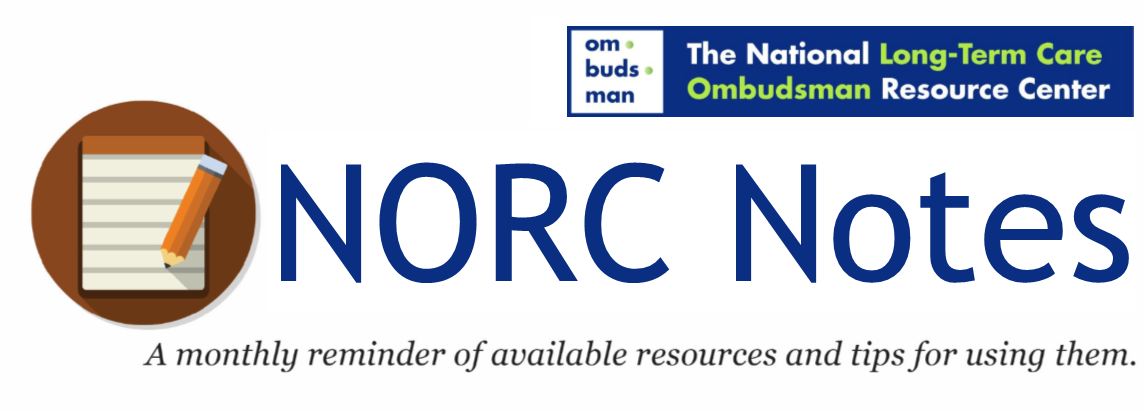| View this message on our website. | |
 |
|
| SHARE: |
|
Cultural Competency for Long-Term Care Ombudsman Programs
A long-term care facility is a place residents call "home." A place where someone lives, and calls home, should nurture the human spirit as well as meet medical needs. Cultural competence is the integration and transformation of knowledge about individuals and groups of people into specific standards, policies, practices, and attitudes used in appropriate cultural settings to increase the quality of services and produce better outcomes. What does this mean for Ombudsman programs? According to expert Tawara Goode, Assistant Professor and Director, Georgetown University National Center for Cultural Competence, culturally competent Ombudsman programs:
Additional detailed information on cultural and linguistic competence and what it means for Ombudsman programs was presented in a NORC webinar by Tawara Goode. Watch the recording and view the slides. During this webinar, Tawara Goode mentioned several checklists and assessment tools. Please note that while none are designed specifically for long-term care, they are applicable.
The NORC issue page on person-centered care provides additional documents and resources that may help Ombudsman programs in their work to achieve person-centered care. Read archived issues of NORC Notes. If you have a question, are not able to find a resource, or want to share training materials or program practices, please email ombudcenter@theconsumervoice.org.
|
|
